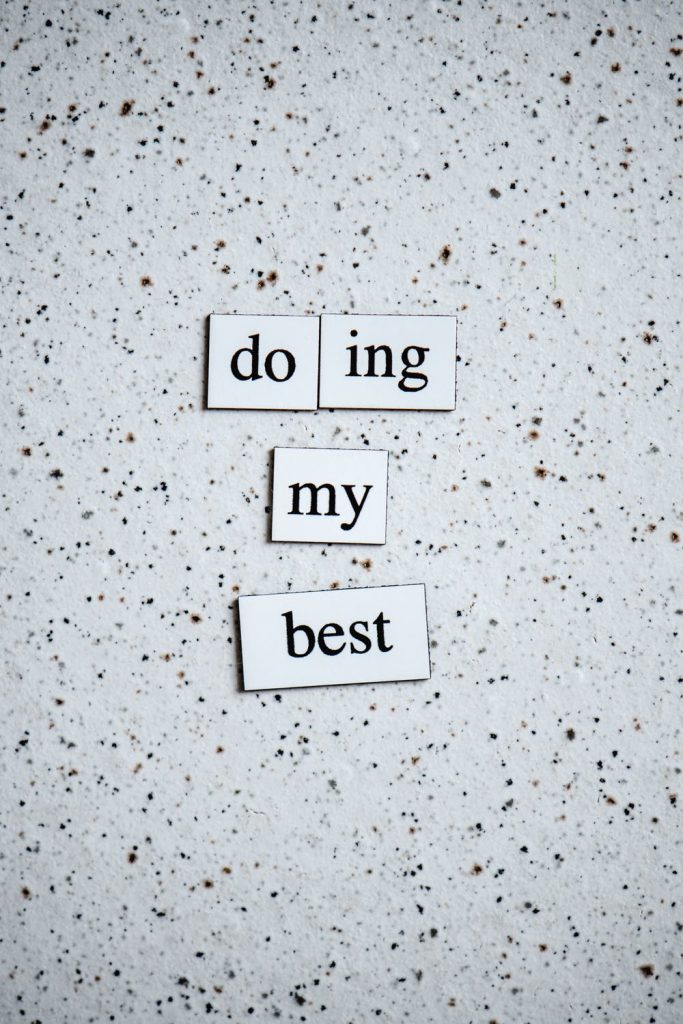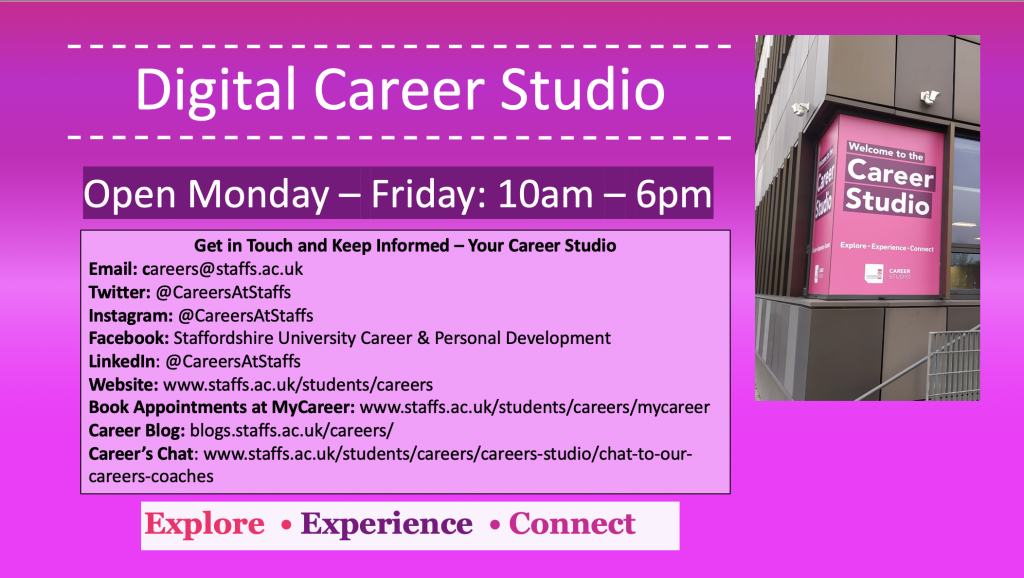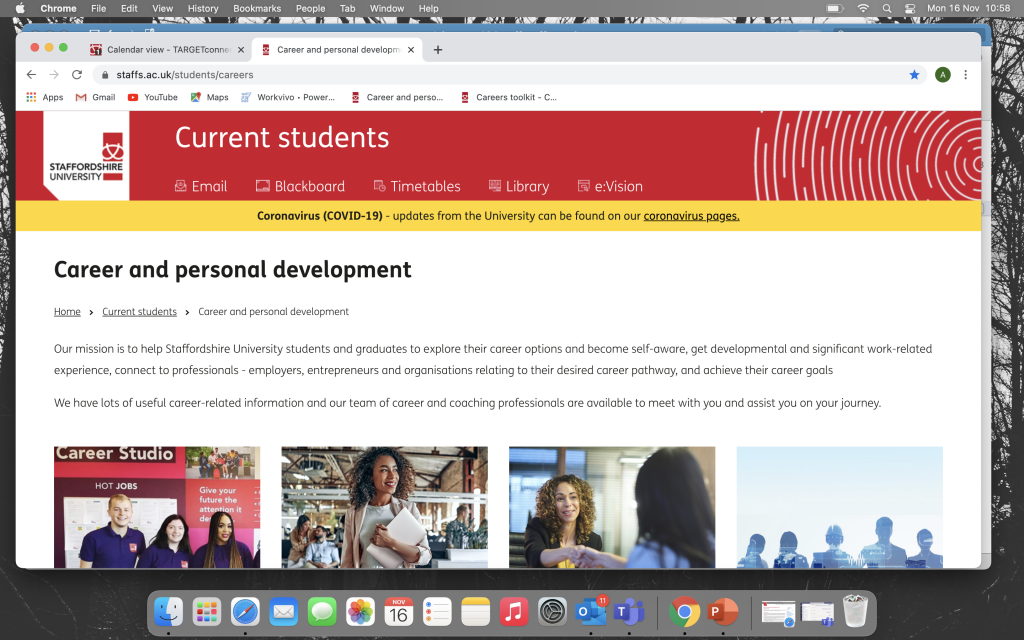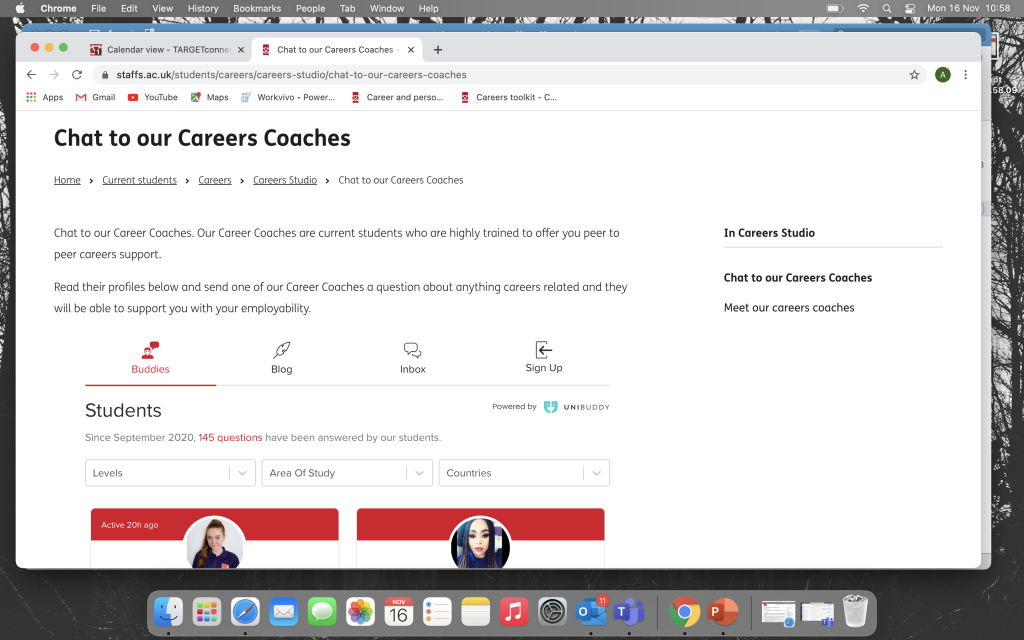Avoiding And Managing Burnout
By ,
Written by Amber
 During the pandemic we are all facing personal and professional challenges we may not have faced before. With working and studying from home, especially now during lockdown 2.0 and for those of us that may be isolating, it can be extremely difficult to stay focused, motivated and on task, to the point where we might actually be starting to experience burnout.
During the pandemic we are all facing personal and professional challenges we may not have faced before. With working and studying from home, especially now during lockdown 2.0 and for those of us that may be isolating, it can be extremely difficult to stay focused, motivated and on task, to the point where we might actually be starting to experience burnout.
What is burnout?
“Burnout is a state of emotional, mental, and often physical exhaustion brought on by prolonged or repeated stress” (https://www.psychologytoday.com/gb/basics/burnout).
I don’t know about you but with the extended social isolation, worrying about catching covid-19 and the impact it could have on family members, trying to balance work, study and a socially distanced social life on top of our usual uni experiences, we all could be experiencing repeated and prolonged stress.
There are many factors that are also probably making us feel exhausted like sitting in the same chair all day because work or uni are all or mostly online, we can’t meet people from other households, or we are physically not allowed to go out. Things like not being able to socialise and go outside the house could have huge implications on the motivation, productivity and wellbeing of individuals.
How to avoid or manage burnout?
Some of these tips have helped me but that doesn’t mean they work for everyone. Try to find things that work for you.
Set Boundaries
Remember it’s okay to say no! You don’t have to be capable of doing everything all the time – if you don’t have time, don’t feel able or just don’t want to do it then that’s okay.
Healthy Work-Life Balance
Make sure if you work or study at home you are not going beyond what is expected of you. If you work from home, I highly recommend not having work emails on personal devices you have access to all the time like your phone.
Designated Workspace
Try to have a specific workspace like a desk or different room to where you relax if possible. It can help with your ‘work mindset’ to have a specific place to do work tasks.
Write A List
I am definitely a list person! Sometimes it helps to write down your tasks for the day and when you cross them off it can be so satisfying. Try to make sure they are achievable though otherwise the to-do list could have a negative impact.
Take A Break
This sounds so simple but having a break and switching off is the best thing for us! I try to have at least one day a week where I do nothing but facetime friends and binge watch Netflix. If you feel like you can’t have a full day off, then at least try to have an hour or two each day.
Fresh Air
For people that aren’t outdoorsy, I still recommend trying to get outside occasionally as I’m sure we all might be experiencing some cabin fever at some point during the pandemic. I know it’s cold at the moment which doesn’t seem inviting but after 8 hours sat in one spot at a computer screen even the cold air is welcoming.
Talk
One of the biggest, most important things to do is to talk to people, whether this is people you know like friends and family, speaking to lecturers or tutors, or speaking to people you don’t know. If things start becoming overwhelming or you feel like you’re more stressed than usual, then tell someone.
Meeting Deadlines
Now, as many of you may know this is also a busy time to meet deadlines for graduate schemes, jobs and placements, which can also be stressful. To try and make that experience easier for you firstly try to follow (or find) tips to help manage stress and burnout.
Regarding career questions, problems or applications the Careers Team can help you every step of the way. Make an appointment with a Career Coach via My Career (https://www.staffs.ac.uk/students/careers/mycareer) and we can discuss what stage you’re at and how best we can help you. This is a service you can keep coming back to as many times as you need, even when you are a graduate.
Alternatively, you can also chat to a Coach (https://www.staffs.ac.uk/students/careers/careers-studio/chat-to-our-careers-coaches) if you would prefer a more informal (text-like) conversation. Our Coach profiles also show our experiences which may help you get the answers you need as many of us may have ‘walked in your shoes’.
Remember we are still here for you!
To speak to one of our Career Coaches get in touch:
Email: careers@staffs.ac.uk
Twitter: @CareersAtStaffs
Instagram: @CareersAtStaffs
Facebook: Staffordshire University Career & Personal Development
LinkedIn: @CareersAtStaffs
Career Chat: https://www.staffs.ac.uk/students/careers/careers-studio/chat-to-our-careers-coaches




